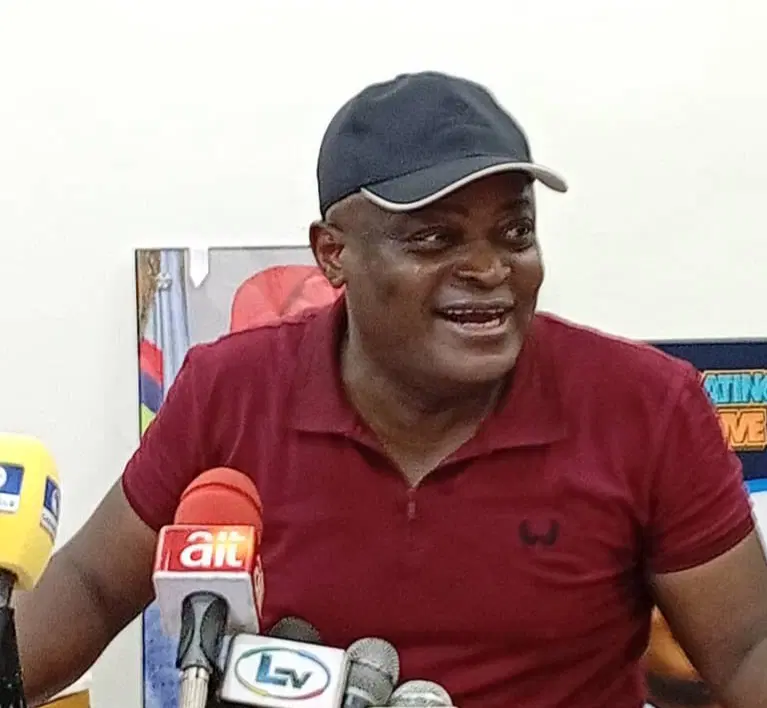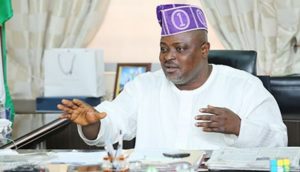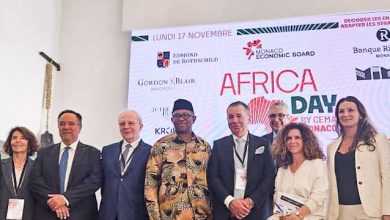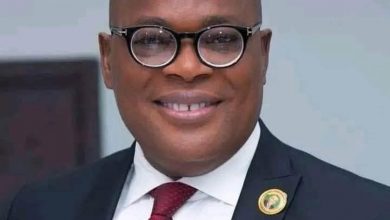
Court Nullifies Obasa’s Removal as Lagos Assembly Speaker – Full Details
Lagos High Court reinstates Obasa as Speaker, declares his removal illegal. Full details on the court ruling, political drama, and reactions from lawmakers.
The political landscape of Lagos State witnessed a dramatic legal twist on Wednesday, April 2025, as the Lagos State High Court nullified the removal of Rt. Hon. Mudashiru Obasa as the Speaker of the Lagos State House of Assembly. This verdict sent shockwaves through the state’s legislative arm, igniting heated debates among lawmakers, political observers, and citizens alike.
The Dramatic Courtroom Verdict
In a judgment delivered by Justice Yetunde Pinheiro, the court ruled that the proceedings and resolutions of the Lagos State House of Assembly on January 13, 2025, which led to the purported removal of Obasa, were unconstitutional, unlawful, and void.
Justice Pinheiro firmly stated that Obasa’s ouster did not comply with the necessary constitutional procedures required for such action. The court emphasized that the Assembly was on recess during the controversial session, and there was no proper delegation of authority to convene the house or to impeach the Speaker in his absence.
Background of the Power Struggle
The crisis began in early January 2025 when 35 lawmakers convened an emergency session while the Assembly was officially on recess. During this session, they claimed to have passed a resolution removing Obasa from office and immediately appointed Hon. Mojisola Meranda as the new Speaker.
However, questions arose regarding the legality of the sitting, especially as Obasa was not present in the country at the time, and no formal delegation had been made for such a session to take place.
Obasa’s Legal Action
Reacting swiftly to what he described as a legislative coup, Mudashiru Obasa approached the Lagos State High Court. In a suit filed on February 12, 2025, through his senior counsel, Chief Afolabi Fashanu (SAN), Obasa challenged the legitimacy of the sitting and his subsequent removal.
He listed both the Lagos State House of Assembly and Speaker Mojisola Meranda as defendants. Obasa’s legal team argued that the purported impeachment was not only unconstitutional but also violated the Assembly’s Standing Orders and the 1999 Constitution of the Federal Republic of Nigeria (as amended).
Among the key points in Obasa’s legal argument were:
- That the Assembly was on official recess when the session took place;
- That no prior notice was given for such an emergency session;
- That Obasa, being out of the country, did not authorize any sitting;
- That the process violated both the spirit and letters of due legislative process.
Court’s Justification for Reinstatement
Justice Pinheiro, in her ruling, agreed with the arguments presented by Obasa’s counsel. She held that the Assembly acted outside its powers and failed to follow laid down procedures in removing the Speaker.
The court concluded that any resolutions passed during the January 13 session were invalid, including the election of Mojisola Meranda. As such, Obasa was reinstated immediately, and the legislative actions taken during the disputed sitting were declared null and void.
The Aftermath: Tension in the House
The ruling, rather than settling the dust, appeared to have inflamed internal tensions within the Assembly. Reports indicate that the reinstated Speaker, Obasa, immediately changed the legal counsel representing the Assembly in court—a unilateral move that further deepened the divide among lawmakers.
This action sparked outrage from the 35 lawmakers who had earlier removed him, many of whom saw the move as an abuse of power and an attempt to consolidate his grip on the House.
There have been murmurs within political circles suggesting that the internal wrangling may not end anytime soon. Some lawmakers have accused Obasa of overreaching his powers, while his supporters insist that the court’s decision vindicated his stand.
Reactions from Political Stakeholders
Reactions have continued to pour in from across the state and beyond. Legal analysts praised the court for upholding constitutional order and the rule of law. One constitutional lawyer, Barr. Lanre Dosunmu, said the ruling was a timely reminder that due process must be followed in democratic institutions.
“Regardless of political differences, the rule of law remains sacrosanct. This verdict is not about Obasa as a person but about the sanctity of democratic processes,” he stated.
In contrast, some civil society organizations called for calm among the lawmakers and urged them to focus on governance rather than power tussles. A youth group, Lagos Young Voters Alliance, issued a statement advising the House to respect the judiciary and prioritize the needs of Lagosians.

About Mudashiru Obasa
Mudashiru Ajayi Obasa, a long-serving member of the Lagos State House of Assembly, has held the position of Speaker since 2015. He represents Agege Constituency 1 and has built a reputation as a strategic political figure within the Lagos State political architecture.
Though not without controversy, Obasa has managed to weather various political storms during his time in office. The recent legal challenge and subsequent court victory have further cemented his resilience in Nigeria’s often volatile political terrain.
Who Is Mojisola Meranda?
Hon. Mojisola Lasbat Meranda was named Speaker by the lawmakers during the January 13 sitting. Prior to that, she served as the Deputy Majority Leader of the House. Her brief tenure as Speaker was marked by attempts to stabilize the Assembly amidst fierce internal opposition.
While she has not publicly contested the court’s ruling, sources close to her suggest that she remains a powerful voice within the Assembly and may continue to influence the legislative process, especially among the bloc of lawmakers who supported her elevation.
What Happens Next?
With the court’s decision in place, Obasa is now legally recognized as the Speaker of the Lagos State House of Assembly. However, the road ahead may be fraught with challenges. Analysts say it will take significant reconciliation efforts to repair the trust deficit among lawmakers and ensure a united front moving forward.
Observers are also watching closely to see if Obasa will seek disciplinary actions against those who spearheaded his removal or if he will take a reconciliatory approach in the spirit of legislative harmony.
Public Sentiment and Media Coverage
The public response to the court’s decision has been mixed. While some applaud the court for defending constitutional order, others express concern that the leadership battle may distract the Assembly from addressing pressing developmental issues facing Lagosians.
Media houses across Nigeria have covered the story extensively, highlighting the legal and political ramifications. The incident has also sparked discussions around legislative ethics, transparency, and the need for stronger institutional checks and balances.
Conclusion: The Power of the Judiciary
The court ruling that reinstated Mudashiru Obasa as Speaker of the Lagos Assembly reinforces the judiciary’s role as a stabilizing force in Nigeria’s democracy. Regardless of political affiliations or personal interests, the rule of law must always guide actions within public institutions.
The leadership crisis within the Lagos State House of Assembly is a test not just of Obasa’s leadership but of the state’s democratic maturity. Moving forward, all eyes will be on how the lawmakers conduct themselves, resolve their differences, and return their focus to serving the people of Lagos State.




